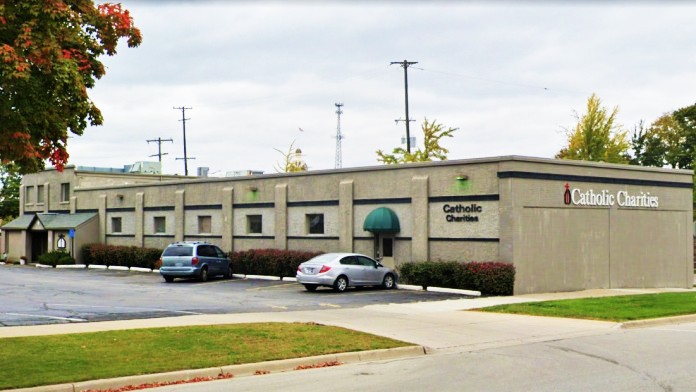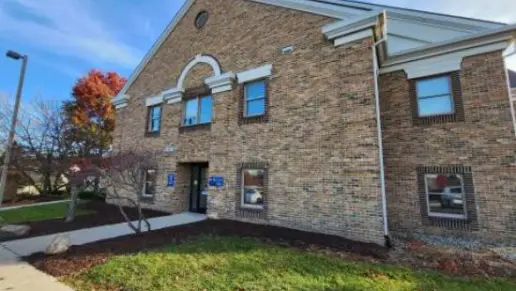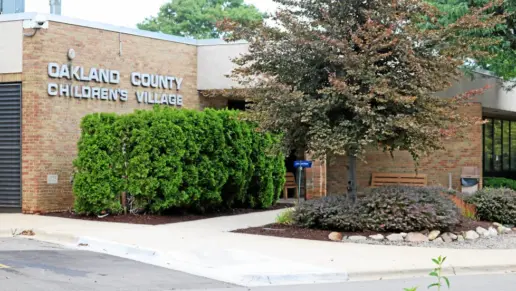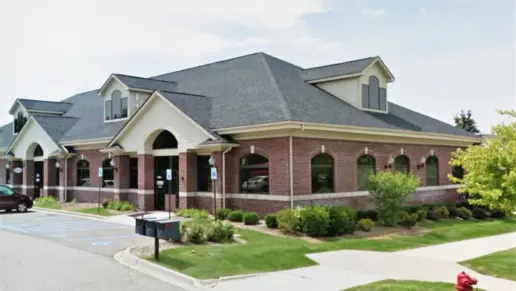About Catholic Charities of Jackson Lenawee and Hillsdale Counties
Catholic Charities of Jackson Lenawee and Hillsdale Counties is a community service organization in Adrian, Michigan. They have a variety of services like child advocacy and foster care services and transportation for seniors, but one of their services is outpatient (OP) therapy and addiction treatment.
There are basically two levels of treatment you can get here for addiction. The first is an organized program they have called Bridges to Recovery. With this program, you have a team of professionals like therapists and addiction counselors and you’ll have a combination of group therapy and individual therapy. The program is designed to guide you through your recovery.
The other option is less formal and that’s traditional outpatient therapy. In this case, you would schedule your appointments at whatever frequency you need and your therapist will help you navigate the challenges of recovery. This level of treatment is mostly for people who either have a mild addiction or have already reached a fairly stable point in their recovery and just need some ongoing or additional support.
This counseling center also offers family therapy and couples therapy. This is important because addiction also affects the people who love you, and family therapy can help your family heal from the effects of addiction. The therapists here can work with people of any age from three on up so your kids can get the care they need too.
The approach here is client centered and strengths based. They treat you as a whole person rather than just treating your addiction from a standardized playbook. They can also help you with other issues that can affect your sobriety like depression or other mental health difficulties as well as trauma and grief and relationship issues.
Latest Reviews
Rehab Score
Gallery

Location
Other Forms of Payment
Medicaid is a state based program that helps lower-income individuals and families pay for healthcare. Medicaid covers addiction treatment so those enrolled can use their coverage to pay for rehab. When a program accepts Medicaid the client often pays very little or nothing out of their own pocket.
Private insurance refers to any kind of healthcare coverage that isn't from the state or federal government. This includes individual and family plans offered by an employer or purchased from the Insurance Marketplace. Every plan will have different requirements and out of pocket costs so be sure to get the full details before you start treatment.
Self-pay involves paying for treatment out of your own pocket. You can use savings or credit, get a personal loan, or receive help from family and friends to fund your treatment. If you don't have insurance or your insurance plan doesn't cover a specific program, self-pay can help ensure you still get the care you need.
Financial aid can take many forms. Centers may have grants or scholarships available to clients who meet eligibility requirements. Programs that receive SAMHSA grants may have financial aid available for those who need treatment as well. Grants and scholarships can help you pai for treatment without having to repay.
Sliding scale payments are based on a client's income and family size. The goal is to make treatment affordable to everyone. By taking these factors into account, addiction recovery care providers help ensure that your treatment does not become a financial burden to you or your family, eliminating one barrier to care.
Medicare is a federal program that provides health insurance for those 65 and older. It also serves people under 65 with chronic and disabling health challenges. To use Medicare for addiction treatment you need to find a program that accepts Medicare and is in network with your plan. Out of pocket costs and preauthorization requirements vary, so always check with your provider.
Military members, veterans, and eligible dependents have access to specific insurance programs that help them get the care they need. TRICARE and VA insurance can help you access low cost or no cost addiction and mental health treatment. Programs that accept military insurance often have targeted treatment focused on the unique challenges military members, veterans, and their families face.
Addiction Treatments
Levels of Care
Treatments
The goal of treatment for alcoholism is abstinence. Those with poor social support, poor motivation, or psychiatric disorders tend to relapse within a few years of treatment. For these people, success is measured by longer periods of abstinence, reduced use of alcohol, better health, and improved social functioning. Recovery and Maintenance are usually based on 12 step programs and AA meetings.
Drug rehab in Michigan provides personalized treatment to help individuals break this cycle and regain control of their lives. Treatment methods are used in various levels of care, including inpatient rehab, partial hospitalization programs, intensive outpatient programs, and standard outpatient treatment.
Many of those suffering from addiction also suffer from mental or emotional illnesses like schizophrenia, bipolar disorder, depression, or anxiety disorders. Rehab and other substance abuse facilities treating those with a dual diagnosis or co-occurring disorder administer psychiatric treatment to address the person's mental health issue in addition to drug and alcohol rehabilitation.
A combined mental health and substance abuse rehab has the staff and resources available to handle individuals with both mental health and substance abuse issues. It can be challenging to determine where a specific symptom stems from (a mental health issue or an issue related to substance abuse), so mental health and substance abuse professionals are helpful in detangling symptoms and keeping treatment on track.
Opioid rehabs specialize in supporting those recovering from opioid addiction. They treat those suffering from addiction to illegal opioids like heroin, as well as prescription drugs like oxycodone. These centers typically combine both physical as well as mental and emotional support to help stop addiction. Physical support often includes medical detox and subsequent medical support (including medication), and mental support includes in-depth therapy to address the underlying causes of addiction.
Programs


Clinical Services
Whether a marriage or other committed relationship, an intimate partnership is one of the most important aspects of a person's life. Drug and alcohol addiction affects both members of a couple in deep and meaningful ways, as does rehab and recovery. Couples therapy and other couples-focused treatment programs are significant parts of exploring triggers of addiction, as well as learning how to build healthy patterns to support ongoing sobriety.
Expressive Arts include activities such as music, art, creative writing, and creative dramatics. Studies indicate that Expressive Arts will assist healing from trauma by providing opportunities to share experiences in an empathetic environment through expressing emotions in a creative process. Expressive Arts allow children to develop self-awareness, reduce stress, and accelerate psychological and physical healing.
Eating disorders include anorexia, bulimia, binge eating, and dysfunctional eating patterns. Many psychologists and other mental health professionals consider eating disorders to be food addictions, meaning food is being used in an addictive way (similar to drug or alcohol addiction). Certain substance abuse treatment programs will have treatment for eating disorders as one of the services offered. An eating disorder may also present as a co-occuring disorder or dual diagnosis alongside drug and alcohol addiction.
In Equine Assisted psychotherapy (EAP), children interact with horses in activities such as grooming, feeding, walking, and games. Work with the horse supports and encourages the identification and expression of feelings. Children are often unaware of their barriers and behavior until they can understand it through the way in which the horse relates it back to them. EAP can serve as a first step in helping them break through these barriers and become more comfortable. Once the barriers are removed, EAP offers children with emotional and behavioral issues a safe environment in which to work through issues of fear, anxiety, self-doubt, and poor communication.
Experiential therapy is a form of therapy in which clients are encouraged to surface and work through subconscious issues by engaging in real-time experiences. Experiential therapy departs from traditional talk therapy by involving the body, and having clients engage in activities, movements, and physical and emotional expression. This can involve role-play or using props (which can include other people). Experiential therapy can help people process trauma, memories, and emotion quickly, deeply, and in a lasting fashion, leading to substantial and impactful healing.
Research clearly demonstrates that recovery is far more successful and sustainable when loved ones like family members participate in rehab and substance abuse treatment. Genetic factors may be at play when it comes to drug and alcohol addiction, as well as mental health issues. Family dynamics often play a critical role in addiction triggers, and if properly educated, family members can be a strong source of support when it comes to rehabilitation.
Group therapy is any therapeutic work that happens in a group (not one-on-one). There are a number of different group therapy modalities, including support groups, experiential therapy, psycho-education, and more. Group therapy involves treatment as well as processing interaction between group members.
In individual therapy, a patient meets one-on-one with a trained psychologist or counselor. Therapy is a pivotal part of effective substance abuse treatment, as it often covers root causes of addiction, including challenges faced by the patient in their social, family, and work/school life.
For an adult, adolescent, or child, talking about trauma is terrifying and intimidating. With grant funding from the Adrian Dominican Sisters and Raskob Foundation, Therapist Pam Millenbach, OP, works with children in foster care to provide specialized services to treat trauma/PTSD and attachment issues in children. Services they provide for the families and foster children are equine-assisted (horse) therapy at a horse-rescue farm and music and drama classes at Siena Heights University.
Amenities
-
Residential Setting
-
Private Setting
Contact Information
199 North Broad Street
Adrian, MI 49221


